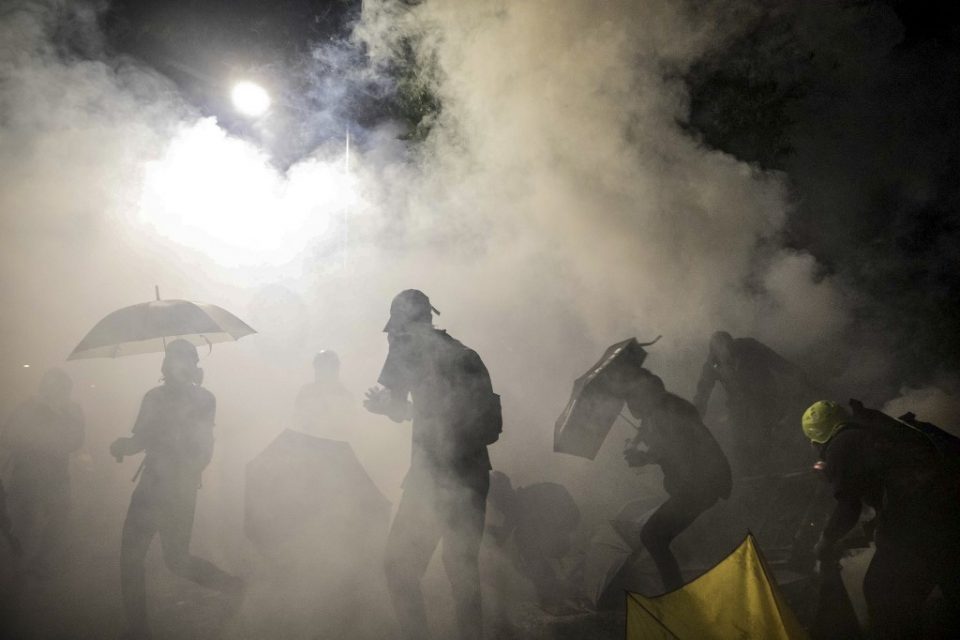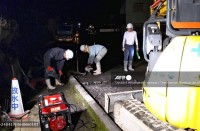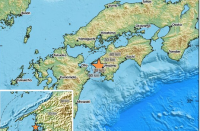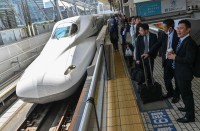
by Su Xinqi and Jerome Taylor
HONG KONG, China (AFP) — Hong Kong pro-democracy protesters fought intense battles with riot police on a university campus and paralyzed the city’s upmarket business district Tuesday, extending one of the most violent stretches of unrest seen in more than five months of political chaos.
The confrontations followed a particularly brutal day on Monday when police shot a protester and a man was set on fire, prompting calls from western powers for compromise but further fury in China against any challenge to its rule.
The city’s universities emerged as a new flashpoint throughout Tuesday with sustained clashes at major campuses for the first time.
The epicenter was the Chinese University of Hong Kong where the usually placid hillside grounds were turned into a battlefield for hours.
Police fired repeated volleys of tear gas and rubber bullets at hundreds of protesters who responded with bricks and petrol bombs.
The clashes raged well into the night, despite faculty and staff trying to mediate, with flames lighting up the night sky and dense clouds of acrid smoke.
Police eventually used a water cannon truck and then began a retreat — although sporadic tear gas fire continued — and as midnight approached the campus remained in the hands of protesters behind their makeshift shield walls.
‘When petrol runs out, I’ll use my hands’
A 19-year-old volunteer medic, who gave his first name Marco, said he had lost count of how many students he treated who had been struck by rubber bullets.
“Most of the cases I received from the frontline had been shot above their chest,” he told AFP.
As the chaotic scenes were broadcast live, protesters took over roads in dozens of neighborhoods in a bid to keep the police stretched while volunteers flocked to the university to bring supplies.
Jim Poon, a first-year student, said he raced back on a moped to join the protests.
“It feels like being humiliated right to our face so I wanted to come back and help,” he told AFP. “When petrol runs out, I will use my hands.”
Change of tactics
After months of largely confining their most disruptive protests to the weekends, online groups used by protesters have been pushing new tactics targeting the working week.
For the last two days, flashmob protesters have blocked roads during the morning rush hour, thrown objects onto rail tracks and held up subway trains, sparking transport chaos throughout the city.
In Central, a district that is home to many blue-chip international firms and luxury shops, thousands of office workers occupied roads for hours on Tuesday chanting: “Fight for freedom, stand with Hong Kong!”
Hundreds of hardcore protesters threw bricks and other objects before retreating when riot police fired tear gas in the shadows of high-end stores.
The scenes were a vivid illustration of how ordinary people are continuing to back the pro-democracy movement — even as the radicals adopt more violent tactics.
Authorities have offered repeated condemnation but been unable or unwilling to find a solution to the crisis.
“Hong Kong’s rule of law has been pushed to the brink of total collapse,” police spokesman Kong Wing-cheung told a press conference on Tuesday as he defended the force against seething public anger.
China tightening control
China has ruled Hong Kong under a “one country, two systems” framework, which allows the city greater freedoms than on the mainland, since its handover from the British in 1997.
The protest movement has been fuelled by Beijing’s tightening control over Hong Kong.
Protesters are demanding a right to freely elect their leaders, as well as an independent inquiry into what they see as police brutality.
But China has steadfastly refused to give any concessions to the protesters, and instead warned of even tougher security measures.
Chinese state media on Tuesday again raised the specter of the People’s Liberation Army being deployed to end the crisis.
The warnings were in response to Monday’s violence, in which a man was doused with a flammable liquid and set ablaze by a masked assailant following an argument with pro-democracy protesters.
“This kind of hair-raising behavior has caused terror and anxiety among the broader Hong Kong public,” foreign ministry spokesman Geng Shuang told reporters in Beijing.
Britain and the United States called on Beijing and Hong Kong to seek a political solution for protesters and condemned the escalating violence on both sides.
European Union spokeswoman Maja Kocijancic on Tuesday said: “it is crucial that all sides exercise restraint.”
The far-reaching impact of the situation on lives and livelihoods in the territory makes a credible and swift solution to the unrest imperative,” she said, while also calling for a “comprehensive inquiry into the violence, use of force and the root causes of the protests.”
Those statements came after a police officer on Monday shot a 21-year-old protester, with that incident broadcast life on Facebook by a bystander.
Both the man set alight and the shot protester remained in critical condition on Tuesday, hospital authorities said.
Tensions had initially spiked following the death last week of a young man who fell from a multi-story car park during clashes with police.
He was the first student to die in the five months of protests, and protests over the weekend then escalated at the start of the working week.
© Agence France-Presse







